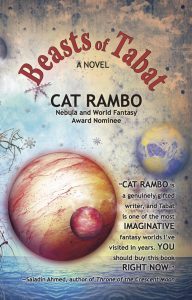Roundtable on Unreliable Narrators
Andy Duncan
Just as all of us are, to some extent, unreliable, so all fictional narrators are, to some extent, unreliable.
Sometimes writers are aware of their narrators’ unreliability, and sometimes not. Sometimes readers are aware of the narrator’s unreliability, and sometimes not. But narrators are unreliable no matter what the writer or reader may think. They are unreliable by definition. They can’t help it.
Some of the most interesting narrators think they’re thoroughly reliable, and tend to be read as thoroughly reliable, but aren’t. Conan Doyle’s Dr. Watson comes to mind.
Charles Tan
For me Brian Evenson hit home: it’s too vague a term and there’s varying degrees of unreliability. Some are evident early on and puts the reader on guard. Others might use it in terms of the plot, sometimes in the form of a surprise revelation or twist. And perhaps the other time it’s used effectively is when the author is trying to convince the reader that the story is objective and factual, and that they shouldn’t question its authenticity (or similarly, when we fully sympathize and believe what the characters are doing).
And at the end of the day, it’s just another tool for the writer to use.
Or as Andrew Duncan puts it, all of us are unreliable to one extent or another 🙂
Russell Letson
Even though he operates in a different narrative mode, Shakespeare keeps popping into my head–much of what he does depends on characters with different takes on some set of events/identities/accounts, each with limited (or even delusional) understanding, while the audience sits in a privileged position and Sees All. In its simplest comic form, it’s the contrived-eavesdropping (Much Ado, Twelfth Night) or mistaken-identity/disguise games (Twelfth Night, As You Like It). (And all of these have their tragic counterparts–they’re primarily devices.) Then you get to Othello, with a master manipulator who never comes up with a consistent motive for his deceptions of others. Not even the audience gets to see what’s in his heart. “I am not what I am,” indeed. Frost got it: “We dance round in a ring and suppose,/ But the Secret sits in the middle and knows.” Or, in the case of Iago, maybe not even the Secret knows.
“Reliable” is an interesting term to use in relation to a fiction–it does not necessarily mean “truthful,” since the truth of a fiction is a sometime thing, subject to whatever transformations or deformations the author decides do impose on it. Instead, “reliablility” in a narrator would seem to be a relative term–how closely does the narrator’s version match whatever is available to compare it to? Is the narrator kidding himself or lying to us or maybe the victim of some dishonesty or distortion or error up the narrative line? Nor is reliability necessarily a falsum in unum matter. In the modernist versions of the nested or embedded narratives of the Club Story, that relativity becomes part of the fiction’s subject matter–questions about psychology or politics or epistemology or even the stability of reality.
Rich Horton
Perhaps related to the whole question of unreliable narrator is the interaction of frame stories with “central” stories, and the way the frame can inform or alter our understanding of the more central story. (As in much Kipling, for example.)
Also, a recent pretty good example of unreliable narrator — Jane from Matt Ruff’s Bad Monkeys — an example in which the unreliability of the narration is central to the meaning of the story.
Paul Graham Raven
I’ll just chime in to say that (being a child of not only postmodernism but small-c conservative parents) I concur with the “all narrators are in some way unreliable” theory; I think the important — or rather interesting — difference, from both the reader’s and writer’s perspective, is between the narrator who is aware of zir unreliability, and the one who isn’t. After all, every narrator views their world through the distorting lens of their own metanarratives, no?
Paul Witcover
What about the unreliable reader?
Cecelia Holland
Him we have no control over.
Ellen Datlow
ALL readers are unreliable. As a reader, I know that even though the writer believes he/she has done “this” in a story, he/she has actually done “that”.
Cecelia Holland
And they all post on Amazon.




